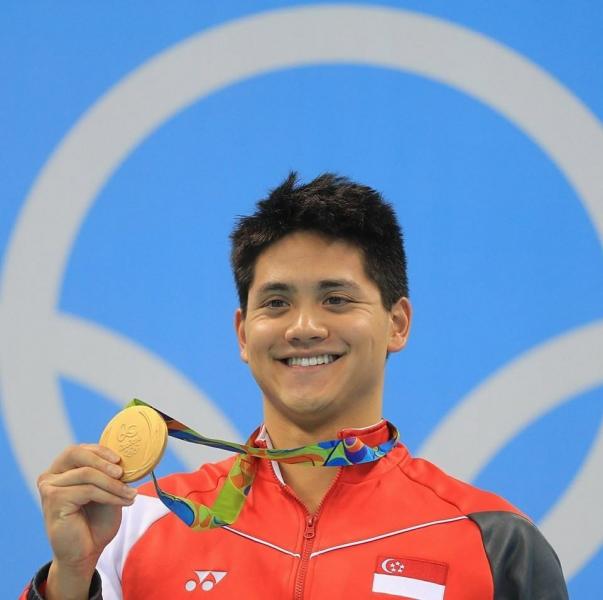Raising A World-Class Athlete Like Joseph Schooling

Details are emerging about local Olympic champ Joseph Schooling’s road to victory, which make it clear that his swimming dream was not mere fantasy but a carefully scripted journey.
These background stories demonstrate that Schooling’s historic winning moment should be credited to efforts that helped him chart and stay the course, such as:
- Foresight, initiative, and dedication on the part of Schooling’s parents from the beginning: They documented every swim meet that he participated in from 2000, and set yearly targets for him based on his personal bests, as well as regional and international standards. They also monitored his performance in specific areas so they could provide constructive feedback, and sent him for a bone test in 2006 to calculate his growth potential—whether he would be likely to reach the optimum height for the sport (1.9m).
- Schooling’s parents, neither of whom were competitive swimmers, made concerted efforts to learn about the sport. They took numerous courses and played host to visiting Olympic swim teams from around the world, which is how a 13-year-old Schooling came to meet his hero Michael Phelps for the first time. His father Colin says they did this to seek “advice, guidance, and direction” from “the best and most knowledgeable professionals worldwide in swimming.”
- Schooling left Singapore to train in the US at 14. His mother May described the move as a “painful decision” that she grudgingly agreed to. By Schooling’s own admission, it was a “hard journey” in the early days and he “hated everything.” There was also a staggering financial investment involved; the Schoolings estimate that they have spent nearly US$1 million on their son’s swimming career.
- A willingness to push boundaries: Schooling’s landmark National Service deferment (which has now been extended to 2020) had been in the works since 2011. It required a detailed documentation of his progress and potential, as well as scientific studies and expert opinions on extended breaks and how they could impede an athlete’s development. Schooling’s parents were responsible for putting together the appeal. According to his father, “It involved my son and I had to give it my best shot!”
If your child is also hoping to embark on the highway to sports glory, what is required of you? Here are more realities to consider for parenting an elite athlete.
Do the groundwork before pushing ahead.
You should first talk to your child to assess his or her passion for the sport, and willingness (as well as ability) to withstand intensive hours-long training, which is typically held daily or several times weekly. The next step would be to seek the opinion of a credible, experienced coach to assess the child’s ability and skill level.
Expect a financial drain with the possibility of low or no returns.
The financial reality of raising a world-class athlete is stark. Training and competition costs can add up to thousands every year, with few avenues for grants or subsidies—this limits the talent pool to only those who can afford the sport, and athletes around the world face similar financial challenges. (Get estimates for raising athletes in different sports, and details on incentive schemes for local athletes.)
Some suggestions to help families cut costs include resource sharing (e.g. carpooling and shared lodging during competitions) and crowdfunding on sites such as GoFundMe.
Be ready to commit wholeheartedly to the cause.
In the words of Colin Schooling, “Nurturing a world-class athlete is never a cheap nor casual exercise.” Families will have to revolve their schedules around training sessions and competition dates, and there will be plenty of ferrying kids to and from practice sessions or competitions. Vacations and other pleasures may have to be sacrificed in favour of sporting commitments.
There may be an emotional toll on your child.
The world loves winners, and grappling with defeat is part and parcel of sporting involvement at any level. But according to sports psychologist Frank Smoll, athletes differ vastly in their reactions to defeat. “Some may be barely affected or may forget the loss almost immediately,” he says. “Others will be virtually devastated and may be low-spirited for days.” (Read his advice for helping young athletes handle defeat and develop mental strength.)
You may encounter bad behaviour—from sports parents.
Overzealous parents are present at every level of sport, and their antics range from rumour mongering and harassing coaches to bullying other competitors. To discourage negative behaviours, one can gather likeminded parents to establish a parental code of conduct, which spells out acceptable and unacceptable behaviours on the sidelines.

